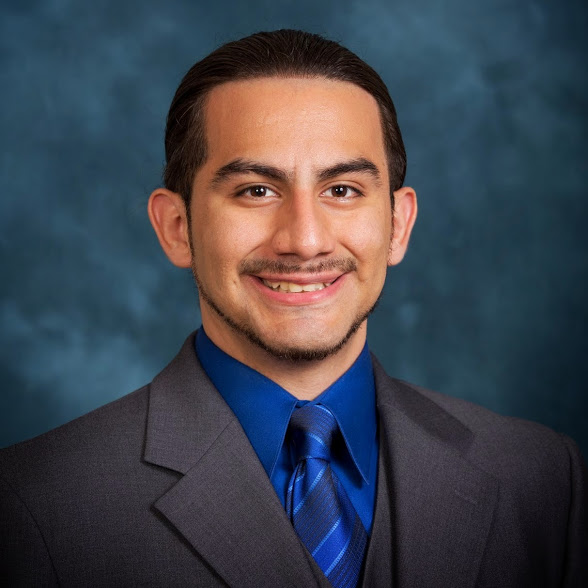 Armour College of Engineering’s Department of Mechanical, Materials, and Aerospace Engineering will welcome Mauro Rodriguez Jr., a postdoctoral research fellow at the California Institute of Technology, to present a lecture, “A Eulerian Multi-component Framework for Fluid-Structure Interaction Problems Including Cavitation.”
Armour College of Engineering’s Department of Mechanical, Materials, and Aerospace Engineering will welcome Mauro Rodriguez Jr., a postdoctoral research fellow at the California Institute of Technology, to present a lecture, “A Eulerian Multi-component Framework for Fluid-Structure Interaction Problems Including Cavitation.”
The virtual seminar will take place on Wednesday, April 28, from 3:30–4:30 p.m. Contact Elena Magnus at magnus@iit.edu for the seminar details and a link to join.
Abstract:
The manipulation of cavitating, bubbly flows is a critical need across a wide range of applications including naval hydraulic, energy science, and biomedicine. Cavitation is a pressure-driven vaporization process that can take place in highly transient liquid flows. In naval hydraulic applications, cavitation erosion of propeller blades is undesired. The erosion inhibits performance and is the primary source of frequent, costly maintenance. To address this adverse effect and biofouling, viscoelastic coatings are applied to the blades. Nevertheless, cavitation erodes these coatings, which then also needs costly reapplication. Similarly, cavitation erosion limits the operation life cycle and performance of the Department of Energy’s Spallation Neutron Source experiments used to develop a wide range of technologies. On the other hand, cavitation is desired in biomedicine. An example is non-invasive, focused ultrasound therapy tools. These tools generate cavitation bubbles to erode kidney and gallbladder stones (lithotripsy) or ablate soft, pathogenic tissues (histotripsy). Understanding the bubble dynamics and material response interactions is needed to increase the efficacy of these tools.
To study these fluid-structure interaction problems, the challenge is to numerically simulate non-spherical small bubbles in a bubble cloud with wave dynamics in the fluid(s) and nearby solid. Unlike the gas bubbles and surrounding liquid that lend themselves to a Eulerian framework, the nearby solid undergoes infinitely small to finite deformations that are well-suited to be captured in a Lagrangian framework. However, algorithmic complexity increases significantly with two separate solvers and coupling between them. Of the two current monolithic Eulerian approaches (i.e., hyperelastic and hypoelastic (conventional)) used to study wave dynamics and material deformations, the hypoelastic approach’s algorithm is well-suited to incorporate elasticity to existing multiphase/multi-component numerical solvers. During the seminar, a Eulerian numerical framework with a hypoelastic model to solve multi-component fluid-structure interaction problems including multi-scale cavitation will be presented. Physical insights involving two canonical flows, i.e., shock-induced collapse of a bubble near an elastic object and a confined bubble in a channel, will be presented. Future directions and applications for numerically simulating multi-component flows involving extreme deformations in and near viscoelastic materials will also be presented.
Biography:
Mauro Rodriguez Jr., Ph.D. is a Ford Foundation and National Science Foundation-Alliances for Graduate Education and the Professoriate postdoctoral research fellow at the California Institute of Technology under the mentorship of Professor Tim Colonius. Rodriguez’s research focuses cavitation bubble dynamics with mass transfer in and near viscoelastic materials. He uses high-fidelity computational fluid dynamics to study wave and bubble dynamics in and near hard/soft materials relevant to medical (e.g., desired cavitation in ultrasound therapy tools to treat pathogenic tissues) applications. He earned with doctorate in mechanical engineering from the University of Michigan, Ann Arbor under the supervision of Associate Professor Eric Johnsen. Rodriguez’s doctoral thesis focused on high-fidelity computational fluid dynamic simulations of bubble dynamics near (linear) viscoelastic media. In 2012, he received Master of Science in mechanical engineering from Stanford University as a graduate engineering fellow. In 2010, Mauro earned his Bachelor of Science degree with honors in mechanical science and engineering from the University of Illinois at Urbana-Champaign. A westside of Chicago native, Rodriguez is passionately committed to increasing Latino/a participation across all levels of Science, Technology, Engineering and Math workforce pathways. He has served in several national leadership roles for the Society of Hispanic Professional Engineers since 2009.
